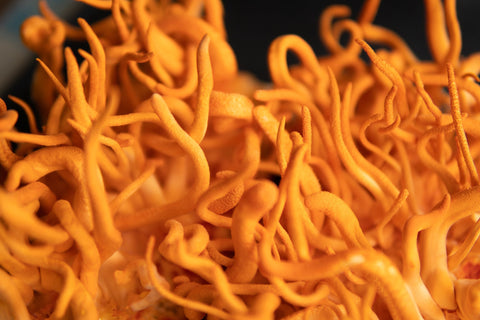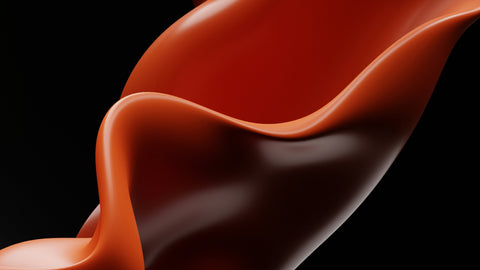NMN Outperforms NR in Human Trials: Why Bioavailability Matters
03.07.2025
As researchers increasingly explore NAD⁺ precursors, NMN has emerged as more effective than NR (nicotinamide riboside) in human clinical contexts. These compounds are central to cellular energy metabolism and longevity science, but not all NAD⁺ boosters are created equal.

A growing body of clinical data supports the use of high-purity NMN, especially the beta isomer, as a reliable NAD⁺ enhancer and ageing support molecule.
Understanding NMN vs NR
Both NMN and NR are precursors in the NAD⁺ salvage pathway, but they differ significantly in absorption, metabolic conversion, and tissue accessibility.
NR is absorbed in the small intestine and later converted to NMN via NRK enzymes, before being used to regenerate NAD⁺. However, this pathway has notable limitations. A Nature Communications study showed that NR at doses up to 1 gram daily can increase NAD⁺ by up to 2.7-fold, but with high inter-individual variability.
NMN, on the other hand, is a more direct precursor. It bypasses the NRK pathway entirely and may enter cells directly through specific transporters. This potentially allows for more consistent increases in NAD⁺ in key tissues.
What is Bioavailability?
Bioavailability refers to the degree and rate at which a substance, such as a supplement or drug, is absorbed into the bloodstream and made available for use by the body. In the context of NAD⁺ precursors like NMN and NR, bioavailability determines how effectively a supplement can raise NAD⁺ levels in key tissues such as the brain, muscles, and liver.
A supplement with poor bioavailability may be broken down in the digestive system, poorly absorbed, or metabolised too quickly to deliver meaningful results. Conversely, a high-bioavailability NMN supplement ensures that more of the active ingredient reaches cells intact, supporting energy metabolism, cognitive health, and healthy ageing more effectively.
For consumers comparing NMN vs NR supplements, bioavailability is a key factor in choosing a product that actually delivers clinical benefits.

Human Evidence on Bioavailability
NR
While NR has been shown to elevate blood NAD⁺, its effectiveness is highly inconsistent among users, several clinical studies report “few clinically relevant effects” and substantial inter‑individual variability in response.
- A 2023 study by Treebak et al. found that NR supplementation produced modest NAD⁺ increases with limited clinical effects, highlighting its variability in humans.
NMN
Multiple peer-reviewed human studies support NMN’s efficacy and safety:
- A Nature Aging clinical trial using 1,250 mg of NMN per day found it to be well tolerated with no significant side effects.
- Further trials indicate that NMN elevates NAD⁺ more uniformly, particularly in muscle and brain tissue.
- Moreover, a PubMed Central review shows NMN is absorbed intact and supports systemic NAD⁺ biosynthesis via both intracellular and extracellular routes.
- A randomised, double-blind, placebo-controlled trial published in Science demonstrated that oral supplementation with nicotinamide mononucleotide (NMN) at just 250 mg/day for 10 weeks significantly improved muscle insulin sensitivity in overweight or obese postmenopausal women, suggesting systemic metabolic benefits.
Meta-analyses suggest that while both NMN and NR raise NAD⁺ by 1.5–2.5×, NMN may provide more consistent and sustained results due to superior stability and direct uptake mechanisms.
Three Factors that Impact Bioavailability
The effectiveness of any NAD⁺ precursor depends on more than just dose. Three key factors determine its impact:
ABSORPTION AND METABOLISM
NR is sensitive to degradation in the gut and requires enzymatic activation. In contrast, NMN can bypass this rate-limiting step, which may explain its broader systemic benefits.
MOLECULAR FORM AND DOSAGE
Only the beta form of NMN is biologically active. High-quality supplements must deliver clinical doses—typically 1000 mg/day or higher—with proven purity.
PATHWAY EFFICIENCY
NMN bypasses the NRK pathway entirely, reducing the variability seen with NR. As highlighted in this biosynthetic review, NMN’s enzymatic conversion supports better NAD⁺ replenishment across tissues.
When Should You Choose NMN vs NR?
For consumers exploring NAD⁺ support, both NMN and NR are valid options, each with its own advantages. However, their differences in absorption, pathway efficiency, and clinical data can make one more suitable than the other depending on your goals.
Choose NMN if:
- You want a direct NAD⁺ precursor with minimal metabolic conversion steps.
- You're focused on muscle health, cognitive clarity, or metabolic resilience.
- You prefer supplements with emerging human trial evidence and fewer variables in absorption.
- You’re already using mitochondrial or longevity-focused protocols.
Consider NR if:
- You’re new to NAD⁺ supplementation and want a more cost-effective starting point.
- You're generally healthy and seeking mild, long-term NAD⁺ support.
- You prefer a product with a longer commercial track record and easier capsule formats
What to look for: Maximising Bioavailability
Whether choosing NMN or NR, the bioavailability of your supplement is critical. To ensure effective NAD⁺ elevation, look for:
- ≥99% purity, verified by third-party testing.
- Enzymatic synthesis to ensure only the bioactive beta form is used.
- Full compliance with GMP, ILARC, ISO, and HACCP manufacturing standards.
- A clinical dose of at least 250–1000 mg per day, depending on your age and the form.
- UK-based fulfilment to avoid customs delays and appropriate light- and moisture-controlled packaging to preserve the product.

Manapura® NMN – Clinical Grade, Traceable Purity
Manapura Pure NMN is formulated to reflect the latest research in NAD⁺ biology. Every capsule contains:
- 99.97% pure beta-NMN, made using patented enzymatic synthesis.
- Manufactured under GMP, ISO, and HACCP certification.
- Packaged to preserve stability (light- and moisture-controlled).
These attributes align with the current scientific consensus: to optimise NAD⁺, purity, bioavailability, and systemic compatibility must all be addressed.
Clinical Summary
The evidence is becoming clear:
- NMN consistently raises NAD⁺ levels in human trials with excellent safety and tolerability.
- NR, while effective in some individuals, shows inconsistent outcomes due to its metabolic limitations.
- As Harvard Medical School research shows, NMN also plays a role in vascular regeneration, linking cellular energy status to systemic ageing.
A growing body of clinical data supports the use of high-purity NMN, especially the beta isomer, as a reliable NAD⁺ enhancer and ageing support molecule.
Welcome to Manapura.
Crafted by Nature.
Perfected by Science.
Sign up to our newsletter for 10% off your first order.
Related products


